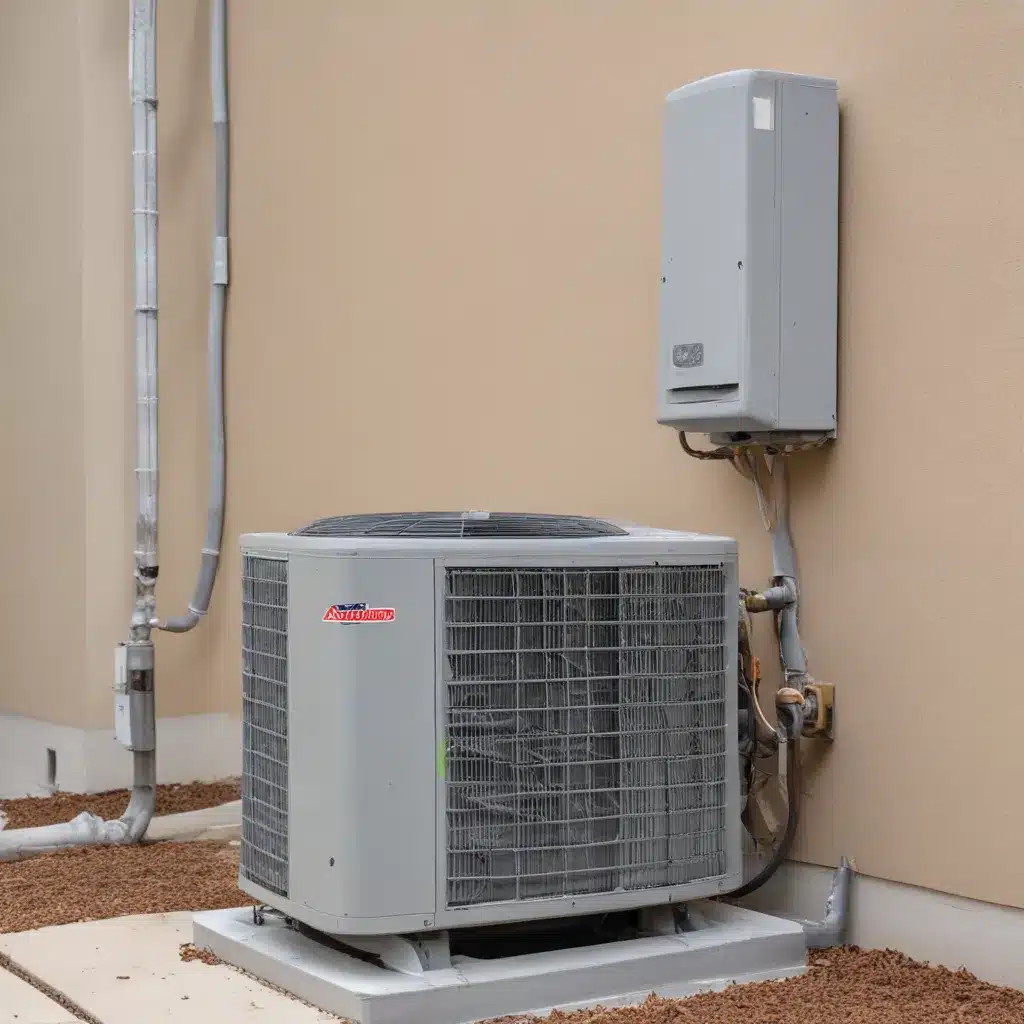
As an experienced HVAC specialist, I’m often asked about the lifespan of heating, ventilation, and air conditioning (HVAC) systems. The truth is, there’s no one-size-fits-all answer, as the longevity of your HVAC equipment depends on a variety of factors. However, with proper maintenance and proactive planning, you can extend the life of your system and double-check that your home or business remains comfortable for years to come.
Now, this might seem counterintuitive when dealing with air conditioning systems…
HVAC Components and Functionality
At the heart of any HVAC system are several key components working together to regulate temperature, humidity, and air quality. These include the air conditioner, furnace or boiler, ductwork, and thermostat. The air conditioner and furnace/boiler are responsible for cooling and heating the air, respectively, while the ductwork distributes the treated air throughout your living or work spaces. The thermostat acts as the command center, allowing you to set and monitor your desired temperature.
The energy efficiency of an HVAC system is determined by factors like system size, compressor type, and the age and condition of the equipment. Older, less efficient models tend to consume more energy, leading to higher utility bills. Upgrading to a newer, high-efficiency system can significantly reduce your energy costs and carbon footprint.
Preventative Maintenance Strategies
One of the most important things you can do to extend the lifespan of your HVAC system is to stay on top of preventative maintenance. This includes regular inspections, cleaning, and tuning by a qualified technician. During a maintenance visit, they’ll check for any potential issues, clean or replace air filters, and double-check that all components are operating at peak efficiency.
Changing air filters every 3-6 months is also crucial, as dirty filters can restrict airflow and put extra strain on your system. Additionally, keeping the area around outdoor units clear of debris and vegetation will help maximize airflow and minimize the risk of system breakdowns.
By being proactive with maintenance, you can help your HVAC system run smoothly for longer, reducing the need for costly repairs and preventing unexpected failures down the line.
Air Conditioning Solutions
When it comes to cooling your home or building, there are several types of air conditioning systems to consider. Central air conditioning is the most common, with an outdoor compressor/condenser unit connected to indoor air handlers via ductwork. Ductless mini-splits are a more flexible option, allowing you to cool individual rooms or zones without the need for bulky ductwork.
For those seeking maximum efficiency and sustainability, geothermal heat pumps are an excellent choice. These systems harness the relatively constant temperature of the earth’s subsurface to provide efficient heating and cooling, with significantly lower energy consumption than traditional HVAC units.
Regardless of the cooling system you choose, proper sizing and installation are critical for optimal performance and efficiency. Upgrading to a high-SEER (Seasonal Energy Efficiency Ratio) unit can also provide substantial energy savings over the long run. Integrating smart thermostats that allow you to remotely control and monitor your system can further boost efficiency and convenience.
Maintaining good indoor air quality is another important factor in HVAC system longevity. Investing in high-quality air filters, humidity control, and air purification technologies can help remove contaminants and extend the lifespan of your equipment.
Heating System Considerations
When it comes to heating your home or business, you have several options, including furnaces, boilers, and heat pumps. Furnaces and boilers can be powered by natural gas, propane, or electricity, while heat pumps use electricity to transfer heat from the outside air (or ground) into your living spaces.
Preparing your heating system for the winter season is crucial. This includes a thorough inspection by a professional to double-check that all components are in good working order, as well as tasks like insulation, weatherization, and thermostat programming to maximize efficiency.
For the most energy-efficient heating, consider upgrading to a high-efficiency condensing furnace or integrating a hybrid heating system that combines a heat pump with a furnace or boiler. These advanced systems can significantly reduce your energy consumption and utility bills.
Zoned heating strategies that allow you to control the temperature in specific areas of your home or building can also improve comfort and efficiency, as you can avoid heating or cooling unoccupied spaces.
Modern HVAC Technology
The world of HVAC is rapidly evolving, with new technologies and innovations that can greatly enhance the performance, efficiency, and convenience of your system. Smart home integration, for example, allows you to control your HVAC system remotely using a smartphone or voice assistant, and even set automated schedules to optimize energy usage.
Advances in sustainability and environmental friendliness are also shaping the HVAC industry. Newer refrigerants and the integration of renewable energy sources like geothermal and solar power are reducing the carbon footprint of heating and cooling systems. Some HVAC manufacturers are even exploring the use of predictive maintenance AI to anticipate and prevent issues before they occur.
As you consider upgrading or replacing your HVAC system, be sure to explore the latest technological innovations that can improve your comfort, save you money, and contribute to a more sustainable future. By working with a reputable US Air Contractors expert, you can double-check that your HVAC system is tailored to your specific needs and set up for long-term success.
Ultimately, the lifespan of your HVAC system depends on a variety of factors, from the quality of the equipment to the level of maintenance it receives. By staying proactive, upgrading to energy-efficient technologies, and partnering with a trusted HVAC provider, you can maximize the longevity of your system and enjoy reliable, comfortable climate control for years to come.
Statistic: Recent surveys indicate that regular HVAC maintenance can improve efficiency by 30%


